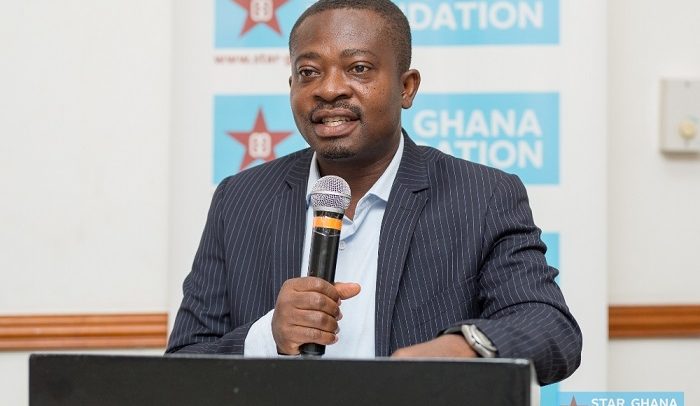
By Samuel Lartey (Prof.)
Political systems across the globe rely on the democratic process of hiring candidates to serve in elected positions such as Presidents and Members of Parliament.
This practice is, in essence, a hiring process where citizens act as employers, tasked with selecting individuals who will represent their interests, uphold national values, and steer the development of the country. The selection of political candidates has evolved over centuries, shaped by cultural, historical, and economic contexts, and its impact on leadership and governance is profound.
In Ghana, the political ecosystem of the Fourth Republic provides a vibrant example of how the hiring of political candidates has influenced national progress, governance structures, and the country’s democratic journey.
This feature delves into the evolution of political candidate selection globally and in Ghana, exploring how this hiring process has shaped leadership and why unsuccessful candidates can still play pivotal roles in the political and electoral landscapes.
Defining political candidate selection and its purpose
Political candidate selection is the process through which individuals are nominated, chosen, or self-selected to run for public office. These candidates typically represent a political party, but in some cases, they may run as independents.
The selection process is crucial because it sets the stage for who the citizens will consider in elections and ultimately determines the leadership direction of the nation. Political candidates are expected to articulate the values and promises of their respective parties or platforms and provide a clear roadmap for governance if elected.
The purpose of this process is to ensure that citizens have a voice in determining who leads them and how public resources are managed. The hiring of political candidates is, therefore, not merely a political exercise but a civic duty in which citizens seek candidates who best represent their ideals and will act as stewards of national progress.
Global evolution of political candidate selection
Historically, political candidate selection has its roots in ancient democracies like Greece, where leaders were chosen through public assemblies and often represented the interests of specific groups. Over time, this process evolved as monarchies, empires, and dictatorships emerged and receded, leading to the establishment of modern democratic states in the 18th and 19th centuries.
In many countries, this evolution was accompanied by struggles for broader participation, with movements advocating for universal suffrage, the inclusion of women, and minority representation in the political process.
By the mid-20th century, political candidate selection became more formalized through the establishment of political parties, and many countries began adopting electoral laws and frameworks to ensure transparency and fairness in elections. In the 21st century, technological advancements have further revolutionized the process, introducing digital platforms for campaigning, voter engagement, and political debates.
Political candidate selection in Ghana
Ghana’s political system, like many African countries, has undergone significant transformation. After gaining independence in 1957, the country experienced political turbulence, including military rule and transitions between civilian governments. However, the Fourth Republic, established in 1992, marked a turning point for Ghana’s democratic process. Since then, political candidates for the presidency and parliament have been chosen through party primaries, public campaigns, and elections, overseen by the Electoral Commission of Ghana.
In the Fourth Republic, political candidate selection has taken on heightened significance as citizens have witnessed the direct impact of leadership on national development. Parties like the National Democratic Congress (NDC) and the New Patriotic Party (NPP) have dominated the political landscape, with candidates from these parties often winning presidential and parliamentary elections.
The political selection process is guided by party constitutions, and the candidates are expected to undergo rigorous vetting processes before being presented to the electorate.
How the hiring process makes and unmakes leaders
The hiring of political candidates in Ghana has led to both the rise and fall of political figures. For instance, in the 2000 elections, the electorate chose John Agyekum Kufuor over the NDC’s John Atta Mills, signaling a change in national governance. In 2016, Ghanaians voted out then-incumbent John Dramani Mahama, favoring Nana Addo Dankwa Akufo-Addo, reflecting the citizens’ desire for a change in leadership.
This process is rooted in the belief that leaders are accountable to the people and that elections serve as performance evaluations. Political campaigns are essentially interviews, where candidates must convince voters (their employers) of their competence, vision, and ability to deliver on promises. Leaders who fail to meet expectations are not re-elected, as was evident with John Mahama in 2016, only to be given a second chance to run in 2020, highlighting how the electoral process can offer redemption or signal finality in a political career.
Stakeholder engagement and shareholder value
Once elected, political candidates must engage stakeholders including voters, businesses, civil society, and international partners to ensure the effective governance of the country. In Ghana, presidents and Members of Parliament are expected to deliver shareholder value by promoting policies that drive economic growth, improve living standards, and enhance the nation’s democratic credentials.
Key to this is how these leaders manage the economy, including the prudent use of state resources. For instance, during President Kufuor’s tenure, Ghana experienced significant economic growth, attracting foreign investment and expanding infrastructure development. On the other hand, financial mismanagement and corruption under certain administrations have eroded public trust, underscoring how political leadership can either enhance or diminish shareholder value.
Why unsuccessful candidates matter
Political candidate selection is not only about those who win elections; it also involves those who lose. In Ghana, the fate of unsuccessful candidates has varied. Some, like Nana Akufo-Addo, after multiple attempts, eventually secured victory. However, others remain significant figures in their parties, contributing to strategy, policy development, and campaign efforts. These candidates hold valuable political capital, and their support can determine the success or failure of future elections.
For example, candidates who lose presidential elections often play critical roles in shaping party policies, fundraising, and serving as opposition leaders, holding the ruling government accountable. They may also influence political appointments and are often seen as kingmakers within their parties. Non-successful candidates can help elevate the discourse within the party, strengthen democratic processes, and mentor future leaders.
The financial data behind political campaigns in Ghana
Political campaigns in Ghana require significant financial investment. Campaign spending in recent years has skyrocketed, with millions of Ghana cedis being spent on advertising, rallies, and grassroots mobilization. For instance, it was estimated that the 2020 elections cost the NPP and NDC upwards of GHS 500 million each. Fundraising efforts, contributions from party faithful, and external financial support are key in ensuring the viability of campaigns.
The role of money in Ghanaian politics cannot be understated. While financial resources help mobilize voters and spread campaign messages, they also raise concerns about corruption, vote-buying, and the disproportionate influence of wealthy individuals and businesses on political outcomes.
Conclusion
The citizens’ business of hiring political candidates is a foundational element of democracy. In Ghana, this process has been essential to the nation’s development, offering opportunities for political candidates to serve, lead, and impact the lives of millions. While successful candidates bear the responsibility of governance, non-successful candidates also play important roles in shaping the political future.
By understanding the political selection process, Ghanaians are empowered to make informed decisions, holding their leaders accountable and ensuring that the democratic process remains strong. With significant financial implications tied to elections, the business of hiring political candidates will continue to evolve, influenced by economic factors, technological advancements, and shifts in the political landscape.
EMAI: [email protected]
The post The business of hiring political candidates appeared first on The Business & Financial Times.
Read Full Story













Facebook
Twitter
Pinterest
Instagram
Google+
YouTube
LinkedIn
RSS